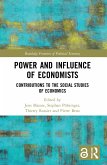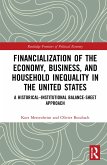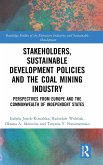Capitalist societies need to undergo major change to provide for the material needs of all the people who work within the system, not just the 1 percent. They have become dysfunctional and need a different kind of orientation to continue in existence. Instead of creating wealth, which is what they are supposed to accomplish, they have created nothing but debt for the past several decades and are now in serious trouble with regard to finding the wherewithal to keep on functioning as viable societies that can provide job opportunities for their workers and the promise of a better life in the future for their citizens. The coronavirus pandemic has exposed just how many people live paycheck to paycheck and have not been able to accumulate any kind of savings. The 1 percent, meanwhile, have benefited greatly and have vastly increased their wealth over the past several decades.
This book does not advocate the need to turn to a form of socialism, however, to give most workers a chance at a decent life for themselves. What is needed is a redefinition of capitalism to make it work for everyone. Capital and Capitalism seeks to uncover various myths about capitalism that hinder our ability to change the system and discuss the task of redefining capitalism by examining where neo-liberalism went wrong and what role restructuring the corporation along stakeholder lines can play in making capitalism more responsive to the entire society.
It will be of interest to researchers, academics, and students in the fields of business and society, leadership, and business ethics.
This book does not advocate the need to turn to a form of socialism, however, to give most workers a chance at a decent life for themselves. What is needed is a redefinition of capitalism to make it work for everyone. Capital and Capitalism seeks to uncover various myths about capitalism that hinder our ability to change the system and discuss the task of redefining capitalism by examining where neo-liberalism went wrong and what role restructuring the corporation along stakeholder lines can play in making capitalism more responsive to the entire society.
It will be of interest to researchers, academics, and students in the fields of business and society, leadership, and business ethics.








